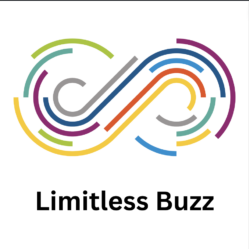Criteria for Eligibility
The initial step in the process of monetizing content on Facebook is to verify that your Page or account satisfies the eligibility requirements. Personal profiles are not eligible for monetization; only Facebook Pages are eligible. Pages must adhere to Facebook’s Partner Monetization Policies and represent a business, brand, or prominent figure. Misleading content, hate speech, spam, and intellectual property violations are all prohibited by these policies.
Another critical factor is the magnitude of the audience. Pages are required to have a minimum of 10,000 followers on Facebook. In order to monetize video content, Pages must have at least five active video uploads and accumulate 600,000 total minutes of video view time within the past 60 days. These prerequisites guarantee that content is both engaging and reaches a significant audience. Pages must also adhere to the Community Standards. A Page’s eligibility for monetization may be impeded by a history of recurrent violations.
Guidelines for Content
Facebook prioritizes the creation of original, high-quality content in order to generate revenue. Content that is appropriate for a broad audience is the foundation of the platform’s advertising system. Videos that contain adult content, controversial political content, or excessive profanity may be ineligible for monetization. Furthermore, creators are required to refrain from utilizing copyrighted material unless they have obtained the appropriate licenses or permissions.
It is essential to maintain originality. Content that has been repurposed or duplicated from other sources frequently fails monetization tests. Your content should be reflective of authentic creativity and provide value, regardless of whether you create written posts, live broadcasts, or videos. Engagement metrics, such as view time, shares, and remarks, are also essential. The monetization opportunities are enhanced by the consistent creation of engaging content, as Facebook prioritizes content that retains viewers.
Alternatives for Monetization
The creators of a Page are granted access to a variety of monetization tools once it has met Facebook’s eligibility criteria. In-Stream Ads are a revenue-generating feature that enables the integration of advertisements into videos, dependent on viewer engagement. In general, longer videos offer a greater number of opportunities for ad placement and higher earnings.
Another monetization tool is Fan Subscriptions, which enable followers to pay a monthly charge in exchange for exclusive content or benefits. Stars are virtual items that viewers acquire during live broadcasts, thereby generating direct revenue for creators. Branded content is also an alternative, in which creators collaborate with businesses to produce sponsored posts. Monetization necessitates adherence to Facebook’s branded content policies and the accurate disclosure of sponsorships.
Monitoring and Maintaining Monetization
Eligibility is merely the initial step. Facebook consistently evaluates the performance of Pages in terms of engagement and compliance with community standards. Demonetization may result from any violations or decreases in engagement. Consequently, it is imperative that creators maintain a consistent level of quality, originality, and engagement.
Creators can monitor their performance with the assistance of tools such as Meta Business Suite and Facebook Creator Studio. These platforms offer analytics on audience behavior, revenue, video performance, and engagement trends. Creators are able to optimize content and sustain a sustainable revenue stream by monitoring these metrics.
Best Practices for Monetization
In order to effectively monetize content, creators should prioritize the development of a devoted audience, the creation of original content, and the adherence to all platform policies. Long-term success is achieved through consistent posting, engagement with followers, and analysis of performance metrics. Avoid shortcuts such as purchasing followers or utilizing copyrighted content, as they can result in account restrictions and demonetization.
Conclusion
Facebook content monetization offers creators a variety of opportunities to convert their passion into revenue. Nevertheless, it is imperative to comply with the platform’s eligibility criteria, adhere to content guidelines, and sustain audience engagement. To access tools such as in-stream advertisements, fan subscriptions, stars, and branded content, pages must have a sufficient number of followers, view time, and compliance with Facebook’s policies. Creators can establish a sustainable revenue-generating presence on Facebook by prioritizing engagement, quality, and originality, thereby converting their content into a dependable source of income.
